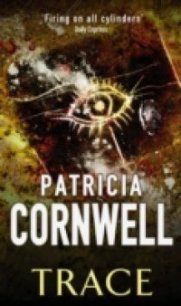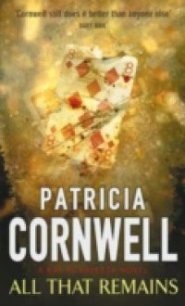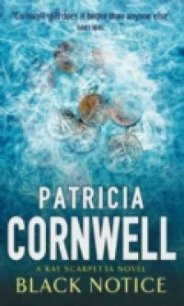The Last Precinct - Cornwell Patricia (лучшие книги читать онлайн TXT) 📗
"And your family?" I ask.
"My sisters are dead. I have a brother in Vienna. Like my father, he is involved in banking. We should get some sleep," Anna says.
I shiver when I first slide beneath the covers, and I draw up my legs and tuck a pillow beneath my broken arm. Talking to Anna has begun to unsettle me around the edges, like the earth about to cave in. I feel phantom pains in parts of me that are past, gone, and my spirit is heavy from the added burden of the story she has told about her own life. Of course, she would not volunteer her past to most people. A Nazi association is a terrible stigma, even now, and to consider that fact causes me to paint her demeanor and her privileged lifestyle on a very different canvas. It doesn't matter that Anna no more had a Choice about who stayed in her family home than she had a say about whom she had sex with when she was seventeen. She would not be forgiven if others knew. "My God," I mutter, staring up at the ceiling in Anna's dark guest room. "Dear God."
I get back up and make my way down the dark hallway, passing through the living room again and into the east wing of the house. The master bedroom is at the end of the hallway, and Anna's door is open, thin moonlight seeping through windows and softly outlining her shape beneath the covers. "Anna?" I speak quietly. "Are you awake?"
She stirs, then sits up. I can barely make out her face as I come closer. Her white hair is down around her shoulders. She looks a hundred years old. "Is everything all right?" she asks groggily and with a trace of alarm.
"I'm sorry," I tell her. "I can't tell you enough how sorry I am. Anna, I've been a terrible friend."
"You have been my most trusted friend." She reaches for my hand and squeezes it, and her bones feel small and fragile beneath soft, loose skin, as if she has suddenly become ancient and vulnerable, not the titan I have always envisioned. Perhaps it is because I now know her story.
"You've suffered so much, carried so much all alone," I whisper. "I'm sorry I've not been there for you. I'm just so sorry," I tell her again. I bend over and hug her awkwardly, cast and all, and kiss her cheek.
Chapter 8
EVEN DURING MY MOST BURDENED, DISTRACTED moments, I appreciate where I work. I am always aware that the medical examiner system I head is probably the finest in the country, if not the world, and that I co-direct the Virginia Institute of Forensic Science and Medicine, the first training academy of its kind. I am able to do all of this in one of the most advanced forensic facilities I have ever seen.
Our new thirty-million-dollar, one-hundred-and-thirty-thousand-square-foot building is called Biotech II and is the center of the Biotechnology Research Park, which has stunningly transformed downtown Richmond by relentlessly replacing abandoned department stores and other boarded-up shells with elegant buildings of brick masonry and glass. Biotech has reclaimed a city that continued to be bullied long after those Northern aggressors fired their last shot.
When I moved here in the late eighties, Richmond consistently topped the list of cities with the highest homicide rate per capita in the United States. Businesses fled to neighboring counties. Virtually no one went downtown after hours. That can be said no more. Remarkably, Richmond is on its way to becoming a city of science and enlightenment, and I confess I never thought it possible. I confess, I hated Richmond when I first moved here for reasons that reach far deeper than Marino's nastiness to me or what I missed about Miami.
I believe cities have personalities; they take on the energy of the people who occupy and rule them. During its worst era, Richmond was stubborn and small-minded, and bore itself with the wounded arrogance of a has-been now ordered about by the very people it once dominated, or in some instances owned. There was a maddening exclusivity that caused people like me to feel looked down on and alone. Through it all, I detected the traces of old injuries and indignities as surely as I find them on bodies. I found a spiritual sadness in the mournful haze that during summer months clings like battle smoke over swamps and endless stands of scrawny pines and drifts along the river, swathing the wounds of brick pilings and foundries and prison camps left from that awful war. I felt compassion. I did not give up on Richmond. This morning, I struggle with my growing belief that it has given up on me.
The tops of buildings in the downtown skyline have vanished in clouds, the air thick with snow. I stare out my office window, distracted by big flakes drifting past as phones ring and people move along the corridor. I worry that state and city government will shut down. This can't happen on my first day back.
"Rose?" I call out to my secretary in the adjoining office. "Are you keeping up with the weather?"
"Snow," her voice sails back.
"I can see that. They aren't closing anything yet, are they?" I reach for my coffee and silently marvel over the unrelenting white storm that has seized our city. Winter wonderlands typically grace the commonwealth west of Charlottesville and north of Fredericksburg, and Richmond is left out. The explanation I have always heard is that the James River in our immediate area warms up the air just enough to replace snow with freezing rains that sweep in like Grant's troops to paralyze the earth.
"Accumulation of possibly eight inches. Tapering off by later afternoon with lows in the twenties." Rose must have logged on to an Internet weather update. "Highs not to get above freezing for the next three days. It looks like we'll have a white Christmas. Isn't that something?"
"Rose, what are you doing for Christmas?"
"Nothing much," her response comes back.
I scan stacks of case files and death certificates and push around phone message slips, mail and interoffice memos. I can't see the top of my desk and don't know where to start. "Eight inches? They'll declare a national emergency," I comment. "We need to find out if anything's closing besides schools. What's on my schedule that hasn't already been canceled?"
Rose is tired of yelling through the wall at me. She walks into my office, looking sharp in a gray pants suit and white turtleneck sweater, her gray hair pinned up in a French twist. She is rarely without my big calendar and opens it. She runs her finger over what is written in it for today, peering through half-moon reading glasses. "The obvious is we now have six cases and it's not even eight o'clock yet," she lets me know. "You're on call for court, but I have a feeling that's not going to happen."
"Which case?"
"Let's see. Mayo Brown. Don't believe I remember him."
"An exhumation," I remember. "A homicidal poisoning, a rather shaky one." The case is on my desk, somewhere. I start looking for it as muscles tense in my neck and shoulders. The last time I saw Buford Righter in my office it was over this very case, which was destined to create nothing but confusion in court even after I spent four hours explaining to him the dilution effect on drug levels when the body has been embalmed, that there is no satisfactory method to quantitate the rate of degradation in embalmed tissue. I went over the toxicology reports and prepared Righter for the defense of dilution. Embalming fluid displaces blood and dilutes drug levels, I drilled into him. So if the decedent's codeine level is at the low end of the acutely lethal dose range, then prior to embalming, the level could only have been higher. I meticulously explained that this is what he needs to focus on because the defense is going to muddy the waters with heroin versus codeine.
We were seated at the oval table in my private conference room, paperwork spread before us. Righter tends to blow out a lot when he is confused, frustrated or just pissed off. He continued to pluck up reports and frown at them, and then put them back down, all the while blowing like a whale breaking surface. "Greek," he kept saying. "How the hell do you make the jury understand things like 6-mono-acetylmorphine is a marker for heroin, and since it wasn't detected, then it doesn't necessarily mean heroin wasn't present, but if it was present, then that would mean heroin was, too? Versus telling if codeine is medicinal?" I told him that was my point, the very thing he didn't want to focus on. Stick to the dilution offense_that the level had to have been higher before the person was embalmed, I coached him. Morphine is a metabolite of heroin. Morphine is also a metabolite of codeine, and when codeine is metabolized in the blood we get very low levels of morphine. We can't tell anything definitively here, except we have no marker for heroin, and we do have levels of codeine and morphine, indicating the man took something_willingly or unwillingly_before he died, I painted the scenario for him. And it was a much higher dose than is indicated now because of the embalming, I stressed again. But do these results prove the man's wife poisoned him with Tylenol Three, for example? No. Don't get gummed up in the tar baby of 6-mono-acetylmorphine, I told Righter repeatedly.



